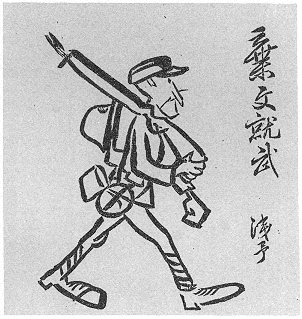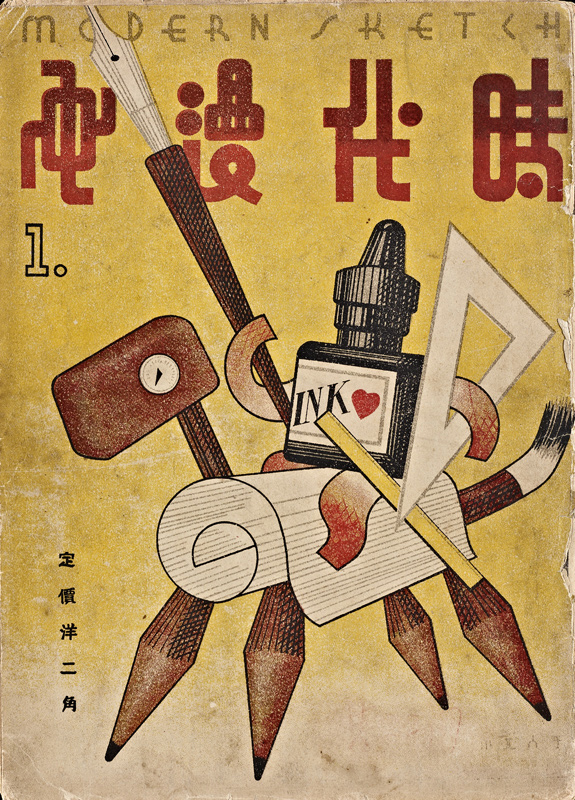|
Sports Queen
''Sports Queen'' (), also known as ''Queen of Sports'' and ''The Athletic Queen'', is a 1934 Chinese film directed by Sun Yu, starring Li Lili and Zhang Yi. The film revolves around a girl who arrives in Shanghai to devote her talents to athletics and is almost led astray by college boys. She is put back on track by her coach and she understands of the idea of "true sportsmanship (体育真精神)". Sun Yu made a series of films featuring the image of "bonny girls", which not only entertained the audiences at the time, but advocated the spirit of "sports saving the nation" in the social and political context of 1930s' China. The film was made to coincide with the 1934 Far Eastern Championship Games (the precursor to the Asian Games) in Shanghai. Plot The story begins with Lin Ying (Li Lili), a free-spirited girl who comes from a wealthy, rural family from Shanghai. She is initially set up with a suitor, but after displaying outstanding athletic prowess, she goes to attend a sp ... [...More Info...] [...Related Items...] OR: [Wikipedia] [Google] [Baidu] |
Li Lili
Li Lili (; 2 June 1915 – 7 August 2005) was a Chinese film actress and singer. Her films '' Playthings'', '' The Great Road'' and ''Storm on the Border'' were blockbusters of the 1930s and 1940s.Elaine DuanTop 10 legendary Chinese women in the 1930s: Li Lili China.org.cn, 2011-08-15. Retrieved 2012-05-06. She was sometimes called "China's Mae West". Her films ''Volcanic Passions'' (1932), ''Playthings'' (''Little Toys'') (1933), ''Daybreak'' (1933), ''Sports Queen'' (1934), and ''The Great Road'' (''The Big Road'') (1934) are available with English subtitles on YouTube. Biography Li was born Qian Zhenzhen () in Beijing, 1915. Her father, Qian Zhuangfei, was a famed secret agent and member of the Chinese Communist Party. In 1927, she moved to Shanghai, where her father encouraged her to join the China Song & Dance Troupe, later renamed Bright Moon Song and Dance Troupe. Li Jinhui, later described as "the Father of Chinese popular music", was the conductor of the troupe and a ... [...More Info...] [...Related Items...] OR: [Wikipedia] [Google] [Baidu] |
China Central Television
China Central Television (CCTV) is a Chinese state- and political party-owned broadcaster controlled by the Chinese Communist Party (CCP). Its 50 different channels broadcast a variety of programing to more than one billion viewers in six languages. However, news reporting about topics sensitive to the CCP is distorted and often used as a weapon against the party's perceived enemies, according to Freedom House and other media commentators. CCTV is operated by the National Radio and Television Administration which reports directly to the CCP's Central Propaganda Department. CCTV was established on 1 May 1958 as a state-owned propaganda outlet. CCTV has a variety of functions, such as news communication, social education, culture, and entertainment information services. As a state television station it is responsible to both the Central Committee of the Chinese Communist Party and the State Council. It is a central player in the Chinese government's propaganda network. Hist ... [...More Info...] [...Related Items...] OR: [Wikipedia] [Google] [Baidu] |
Chinese Black-and-white Films
Chinese can refer to: * Something related to China * Chinese people, people of Chinese nationality, citizenship, and/or ethnicity **''Zhonghua minzu'', the supra-ethnic concept of the Chinese nation ** List of ethnic groups in China, people of various ethnicities in contemporary China ** Han Chinese, the largest ethnic group in the world and the majority ethnic group in Mainland China, Hong Kong, Macau, Taiwan, and Singapore ** Ethnic minorities in China, people of non-Han Chinese ethnicities in modern China ** Ethnic groups in Chinese history, people of various ethnicities in historical China ** Nationals of the People's Republic of China ** Nationals of the Republic of China ** Overseas Chinese, Chinese people residing outside the territories of Mainland China, Hong Kong, Macau, and Taiwan * Sinitic languages, the major branch of the Sino-Tibetan language family ** Chinese language, a group of related languages spoken predominantly in China, sharing a written script (Chinese c ... [...More Info...] [...Related Items...] OR: [Wikipedia] [Google] [Baidu] |
Chinese Drama Films
Chinese can refer to: * Something related to China * Chinese people, people of Chinese nationality, citizenship, and/or ethnicity **''Zhonghua minzu'', the supra-ethnic concept of the Chinese nation ** List of ethnic groups in China, people of various ethnicities in contemporary China ** Han Chinese, the largest ethnic group in the world and the majority ethnic group in Mainland China, Hong Kong, Macau, Taiwan, and Singapore ** Ethnic minorities in China, people of non-Han Chinese ethnicities in modern China ** Ethnic groups in Chinese history, people of various ethnicities in historical China ** Nationals of the People's Republic of China ** Nationals of the Republic of China ** Overseas Chinese, Chinese people residing outside the territories of Mainland China, Hong Kong, Macau, and Taiwan * Sinitic languages, the major branch of the Sino-Tibetan language family ** Chinese language, a group of related languages spoken predominantly in China, sharing a written script (Chinese c ... [...More Info...] [...Related Items...] OR: [Wikipedia] [Google] [Baidu] |
Chinese Silent Films
Chinese can refer to: * Something related to China * Chinese people, people of Chinese nationality, citizenship, and/or ethnicity **''Zhonghua minzu'', the supra-ethnic concept of the Chinese nation ** List of ethnic groups in China, people of various ethnicities in contemporary China ** Han Chinese, the largest ethnic group in the world and the majority ethnic group in Mainland China, Hong Kong, Macau, Taiwan, and Singapore ** Ethnic minorities in China, people of non-Han Chinese ethnicities in modern China ** Ethnic groups in Chinese history, people of various ethnicities in historical China ** Nationals of the People's Republic of China ** Nationals of the Republic of China ** Overseas Chinese, Chinese people residing outside the territories of Mainland China, Hong Kong, Macau, and Taiwan * Sinitic languages, the major branch of the Sino-Tibetan language family ** Chinese language, a group of related languages spoken predominantly in China, sharing a written script (Chinese c ... [...More Info...] [...Related Items...] OR: [Wikipedia] [Google] [Baidu] |
1934 Drama Films
Events January–February * January 1 – The International Telecommunication Union, a specialist agency of the League of Nations, is established. * January 15 – The 8.0 Nepal–Bihar earthquake strikes Nepal and Bihar with a maximum Mercalli intensity of XI (''Extreme''), killing an estimated 6,000–10,700 people. * January 26 – A 10-year German–Polish declaration of non-aggression is signed by Nazi Germany and the Second Polish Republic. * January 30 ** In Nazi Germany, the political power of federal states such as Prussia is substantially abolished, by the "Law on the Reconstruction of the Reich" (''Gesetz über den Neuaufbau des Reiches''). ** Franklin D. Roosevelt, President of the United States, signs the Gold Reserve Act: all gold held in the Federal Reserve is to be surrendered to the United States Department of the Treasury; immediately following, the President raises the statutory gold price from US$20.67 per ounce to $35. * February 6 – French ... [...More Info...] [...Related Items...] OR: [Wikipedia] [Google] [Baidu] |
1934 Films
The following is an overview of 1934 in film, including significant events, a list of films released and notable births and deaths. Top-grossing films (U.S.) The top ten 1934 released films by box office gross in North America are as follows: Events *January 26 – Samuel Goldwyn (formerly of Metro-Goldwyn-Mayer) purchases the film rights to ''The Wonderful Wizard of Oz'' from the L. Frank Baum estate for $40,000. *February 19 – Bob Hope marries Dolores Reade. *April 19 – Fox Studios releases ''Stand Up and Cheer!'', with five-year-old Shirley Temple in a relatively minor role. Shirley steals the film and Fox, which had been near bankruptcy, finds itself owning a goldmine. *May 18 – Paramount releases '' Little Miss Marker'', with Shirley Temple, on loan from Fox, in the title role. *June 13 – An amendment to the Production Code establishes the Production Code Administration, and requires all films to obtain a certificate of approval before being released. *July 28 � ... [...More Info...] [...Related Items...] OR: [Wikipedia] [Google] [Baidu] |
Ye Qianyu
Ye Qianyu (or Yeh Ch'ien-yü; 31 March 1907 – 5 May 1995) was a Chinese painter and pioneering manhua artist. In 1928, he cofounded '' Shanghai Manhua'', one of the earliest and most influential manhua magazines, and created '' Mr. Wang'', one of China's most famous comic strips. Ye was also a master of traditional Chinese painting and served as the head of the Department of Chinese Painting of the China Central Academy of Fine Arts. During the Cultural Revolution he was persecuted and imprisoned for seven years. Ye was married three times. His first two marriages, to Luo Caiyun and dancer Dai Ailian, ended in divorce. His third marriage, to movie star Wang Renmei, lasted more than 30 years until Wang's death. Early life Ye Qianyu was born Ye Lunqi () in Tonglu county, Zhejiang province in 1907. Although he loved to paint since childhood, he had neither the money nor the opportunity to seek professional training, forcing him to teach himself how to paint. Career in Shangha ... [...More Info...] [...Related Items...] OR: [Wikipedia] [Google] [Baidu] |
Shao Xunmei
Shao Xunmei (; Shanghainese: Zau Sinmay; 1906–1968) was a Chinese poet and publisher.Sun and Swindall, p133 He was a contributing writer for '' T'ien Hsia Monthly'', and also was the owner of ''Modern Sketch''.Jones, Andrew F. ''Developmental Fairy Tales''. Harvard University Press, May 2, 2011. , 9780674061033. p228 He originated from Shanghai. Jonathan Hutt wrote in ''Monstre Sacré: The Decadent World of Sinmay Zau'' that "For many, Shao was not simply inspired by the Occident but rather was of it" and that his lack of awareness of "the Chinese literary scene" distinguished him from his colleagues. On some occasions he used the name Hao Wen ().Bien, Gloria. ''Baudelaire in China: A Study in Literary Reception''. University of Delaware, December 14, 2012. , 9781611493900. p125 "47. Hao Wen 浩文 (pseud. of Shao Xunmei)," Life He was born Shao Yunlong () in 1906 into a wealthy Shanghainese family with its ancestral hometown in Yuyao, Zhejiang. Shao lived in the wealthiest par ... [...More Info...] [...Related Items...] OR: [Wikipedia] [Google] [Baidu] |
Modern Sketch
''Modern Sketch'' () was a monthly Chinese art periodical. It ran from January 1934 through June 1937.Crespi, John A.Archive. Massachusetts Institute of Technology. Retrieved August 6, 2014. Printer friendly version . The owner of the publication was (Zau Sinmay),Jones, Andrew F. ''Developmental Fairy Tales''. , May 2, 2011. , 9780674061033. p 228 and the editor was Lu Shaofei (). [...More Info...] [...Related Items...] OR: [Wikipedia] [Google] [Baidu] |
New Women
''New Women'' () is a 1935 Chinese silent drama film produced by the United Photoplay Service. It is sometimes translated as ''New Woman''. The film starred Ruan Lingyu (in her penultimate film) and was directed by Cai Chusheng. This film became one of Ruan Lingyu’s better known works. Her suicide on International Women’s day (8 March 1935) drew attention to the controversial status of new women and made this film a sensation in modern China. The product of "New Women" has been the result of a social economic trend and reform social movement that has been going on for decades. It offered criticism to China's traditional ideology and offered a change in China’s “old women” to “new women” as an alternative social convention. ''New Women'' was considered to be a “problem film” in inciting “the woman question”. This question is actually a set of questions which pertain to how the ‘new women’ of China would be considered within society. Questions such as what ... [...More Info...] [...Related Items...] OR: [Wikipedia] [Google] [Baidu] |
The Goddess (1934 Film)
''The Goddess'' (Chinese: 神女) is a 1934 Chinese silent film released by the Lianhua Film Company (United Photoplay). The film tells the story of an unnamed woman, who lives as a streetwalker by night and devoted mother by day in order to get her young son an education amid social injustice in the streets of Shanghai, China. It stars Ruan Lingyu in one of her final roles, and was directed by Wu Yonggang. Lo Ming Yau produced the film and Hong Weilie was the cinematographer.Wood, Bret.The Goddess (1934)" Turner Classic Movies. N.p., n.d. Web. May 2017. The public responded with enthusiasm, largely due to Ruan Lingyu's popularity in Shanghai in the early 1930s.Hildreth, Richard.The Goddess. The Goddess , Silent Film Festival. N.p., n.d. Web. May 2017. Four years after the original release of ''Goddess'', Yonggang Wu remade the film as ''Yanzhi Lei)'' with changes made to the cast, the setting, and parts of the storyline. After Stanley Kwan's revival of Ruan Lingyu's story throu ... [...More Info...] [...Related Items...] OR: [Wikipedia] [Google] [Baidu] |






